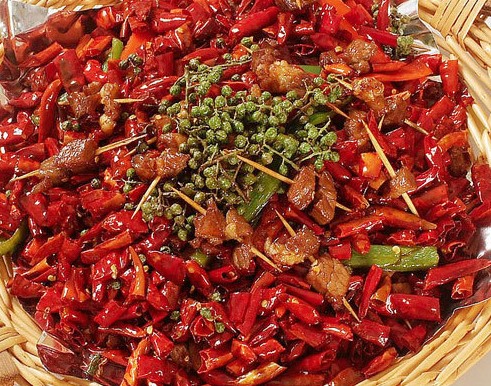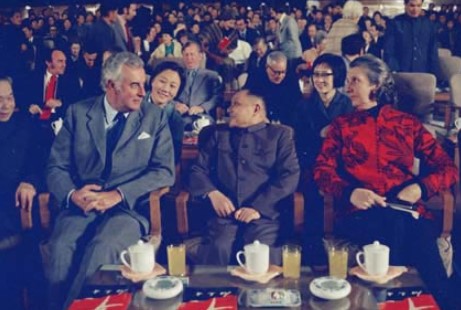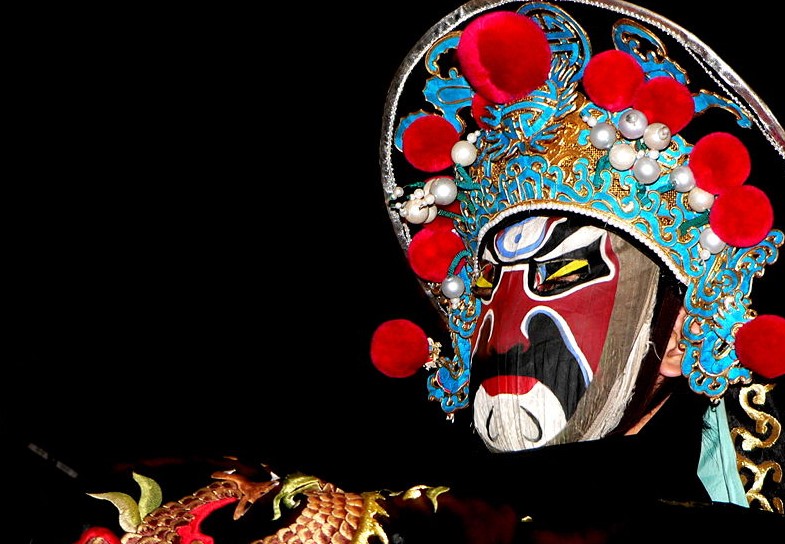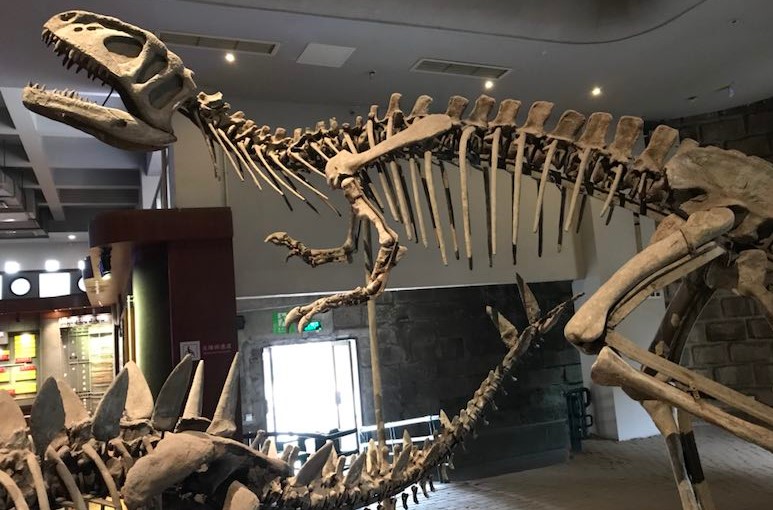How to impress your Sichuan business partners with local trivia
14 February 2018
If a Chinese guest at a business dinner mentioned that the Chiko roll was invented in Bendigo, or that the neenish tart wasn’t in fact created by Ruby Neenish, you’d likely do a double take. Impressed by their knowledge of quirky Australian history, you’d respond warmly to their attempt to break the ice.

The taste of home. Credit: Wikimedia Commons
Well, here is some local knowledge about Sichuan that might strike a chord with your potential business partners here.
A natural place to start is Sichuan cuisine, about which everyone has a view. You could start by noting the increasing popularity of Sichuan food in China and also in Australia. At the same time, you could say that some culinary experts in Chengdu (Sichuan’s provincial capital – see previous blog here) lament that its popularity has led to restaurants to overemphasize the 麻辣 mala – numbing spiciness – of their dishes, which Sichuan cuisine is best known for, and neglect the cornucopia of other tastes, flavors and traditions that form the essence of Sichuan cuisine. The concept of 白菜百味 baicai baiwei (literally, 100 dishes, 100 flavours) represents the enormous diversity of Sichuan cooking, with mala being but one variety.

Mala – ma means numbing, la means spicy
For instance, I particularly enjoy the clear and delicate taste of a humble dish named 开水白菜 kaishui baicai (literally, Chinese cabbage in hot water) which looks like its name but actually takes 10 hours to prepare and contains seven ingredients, not just cabbage and hot water.
You could say that you enjoy Sichuan dishes because they are easy to prepare at home as the ingredients are readily available and affordable. Yet Sichuan cuisine is difficult to master because of the need to balance different combinations and permutations of tastes crucial to the cuisine – sourness, sweetness, spiciness, freshness, and the flavors introduced by garlic, spring onion and ginger.
Sichuan’s favourite son is none other than the pilot of China’s reform and opening, Deng Xiaoping. While everyone knows this, you could say that you understand that Deng was born in a town called Guang’an in eastern Sichuan. He left his hometown when he was 16 and never returned, despite eventually becoming a national leader. Deng’s strong Sichuan accent raised awareness of his home province among his compatriots in post-1949 China. You could hear his unmistakably Sichuan voice in many old recordings, including a museum dedicated to him in Guang’an.

Prime Minister Gough Whitlam meets Chinese Vice Premier Deng Xiaoping in Beijing, 1973
Another topic is the delightful panda, Sichuan’s global ambassador. You could remark that an adult panda eats more than 30 kg of bamboo – stalks, leaves and shoots – a day, which needs to be from high-altitude areas, not just the average bamboo we grow in our backyard. Pandas tend to favour 27 different types of bamboo of the 1200 varieties that exist worldwide. You could also observe that like pandas, people in Sichuan love eating bamboo shoots.
When you’re in Sichuan, your local hosts will probably take you to see a “face-changing” (bianlian 变脸) performance, an excerpt of a much longer traditional Sichuan opera that depicts dramatic tales of heroism, tragedy, unrequited love and despotic rulers. In a typical show, accompanied by high energy music and song, a performer donning an elaborate costume would sashay around on stage wearing a beautifully painted mask. With a quick swipe of their long sleeves or a sudden turn, the performer adroitly changes his or her mask in a split second. As the performance continues, this face changing act takes place anywhere up to 20 times, revealing a new mask each time. Traditionally, performers are all men, although there have been famous female performers.

Tools of the face-changing trade. Credit: Wikimedia Commons
Changing face masks first began as a way of indicating changes in expression and feelings of the protagonist in the story, rather than a magic act in itself. The performer had to find a way of changing their masks quickly without having to go backstage, so the face-changing technique came into being.
If you’re asked whether you’ve traveled outside Chengdu, but you haven’t, you could say that you’re intrigued by Zigong, a city two hours’ drive away that boasts an incredible history. Its dinosaur museum is among the best in the world, including because it sits on a site that is the burial ground for the highest concentration of dinosaur fossils in the world. You’d really to like see species of dinosaurs named after Sichuan and Zigong, such as the Szechuansaurus zigongensis and the Gigantspinosaurusus sichuanensis.

The Zigong Dinousaur Museum is well worth a visit
And if you haven’t impressed your Chinese hosts by now with your extensive knowledge of Sichuan, mention that while Australia will be the top liquified natural gas producer in the world in a few years, China – and in particular Sichuan – was one of the earliest places to extract LNG and use it. In fact, over 2000 years ago during the Han Dynasty, people around the Zigong area extracted LNG using long bamboo tubes in order to use it as fuel to boil down brine into salt. Historically, Zigong was a major salt production centre, being directly above large brine deposits.
If you know a little bit of Chinese, a good idiom to use when you see Chengdu’s foggy sky is shuquan feiri 蜀犬吠日. Literally, it means a dog in Shu Kingdom (modern day Sichuan) barks at the sun. It has two meanings – the first alluding to Sichuan’s misty weather where it’s uncommon to see blue skies, and second, a naïve person marveling at something common. This saying originated in Sichuan.

It is often foggy in Chengdu
Armed with this local knowledge of Sichuan, you will be able indicate to your local business partners that you have taken time not only to undertake in-depth research on your business but also that you’ve taken time to learn a little about local history and culture. In Sichuan, this goes a long way.
Click here to return to Australian Consul-General's Blog on Southwest China
